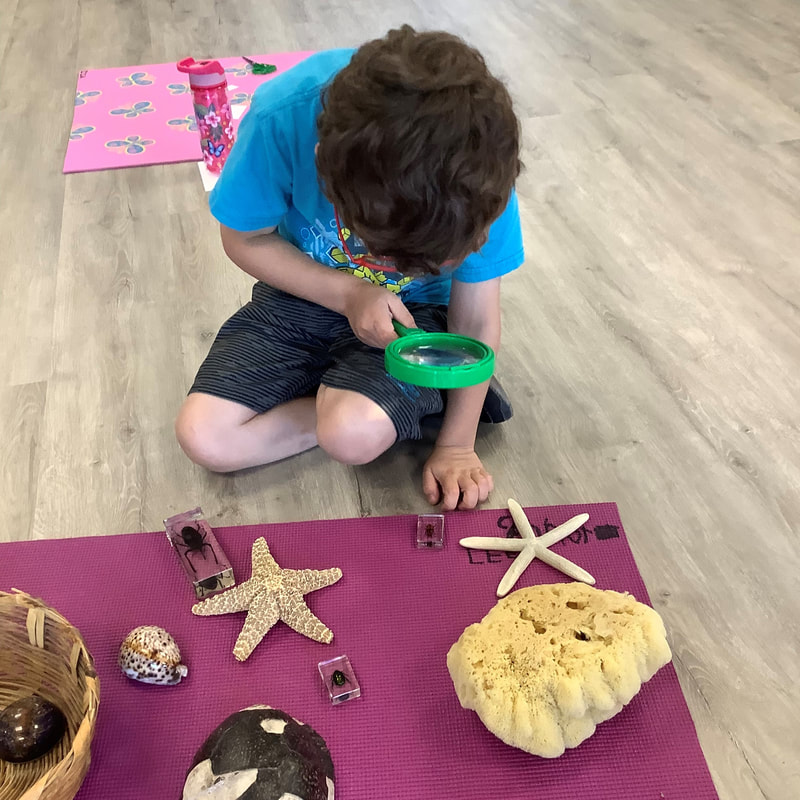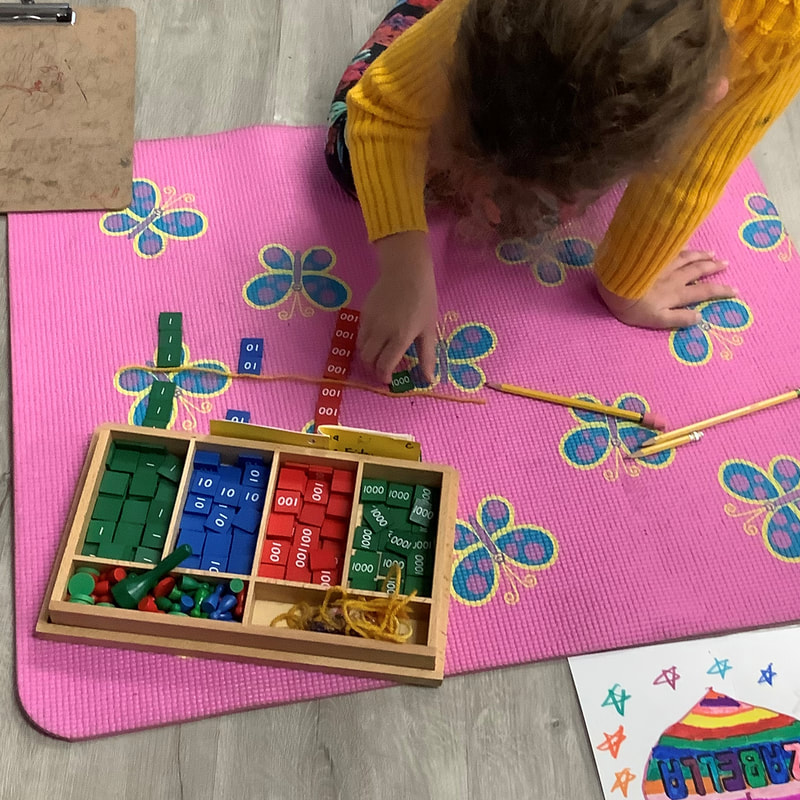6 to 12 years old
"Thinking and memory that is enhanced by creativity and imagination."
Children really begin to collaborate and are given the freedom to discover new horizons. Traditional subjects are linked together and introduced with hands-on materials. Lower elementary students (ages 6-9) are more involved with concrete materials. Upper elementary students (ages 9-12) strengthen their understanding of abstract concepts.
The elementary program meets five days a week, from 8:30 a.m. – 3:15 p.m. In addition, both before- and after-school care are available to all elementary school children.
Our elementary classes are divided into two multi-age groups:
In the AGBMS elementary program, 6-9 year old children (lower elementary) explore the vast world of learning that they touched upon in the Extended Day Program. Social interaction is a very large part of this environment. Children learn how to cooperate and negotiate as they work together. Children learn how to work independently while structuring their time according to the goals on their individual monthly work guides.
The 9-12 year old children (upper elementary) continue to apply and further develop their research skills. Being some of the older children in the school, these students understand their job as role models. As students progress through the three-year cycle, they work less and less with the concrete Montessori materials, as they strengthen their ability to understand abstract concepts. A highlight of this program is spending a week at Amstutz Family Farm.
After line time in the morning, elementary children have a three-hour individualized work period. This time may be spent working on their own, in a small group, or with a directress in a presentation. Montessori philosophy is based on mastery. Once a student has demonstrated mastery of a concept, the next, more advanced concept is introduced. Because children move ahead as quickly or as slowly as they need to, a student can stay with a concept as long, or as short, as necessary.
The ability to make choices and achieve the set goals within the time limit is a learned skill. The ability to follow through on this helps children reach the self-discipline and independence necessary for future accomplishments.
At the end of individual work time, the elementary students prepare for lunch by cleaning and setting the tables. This is also a time for singing songs and sharing stories written during the morning session. Hand washing, good table manners, and proper conversation are part of the lunchtime experience.
Afternoon work time is usually spent in large group presentations in the areas of science, geography, or history. Art and Gym instruction is also included during this time.
The elementary program meets five days a week, from 8:30 a.m. – 3:15 p.m. In addition, both before- and after-school care are available to all elementary school children.
Our elementary classes are divided into two multi-age groups:
- Lower Elementary (ages 6-9)
- Upper Elementary (ages 9-12)
In the AGBMS elementary program, 6-9 year old children (lower elementary) explore the vast world of learning that they touched upon in the Extended Day Program. Social interaction is a very large part of this environment. Children learn how to cooperate and negotiate as they work together. Children learn how to work independently while structuring their time according to the goals on their individual monthly work guides.
The 9-12 year old children (upper elementary) continue to apply and further develop their research skills. Being some of the older children in the school, these students understand their job as role models. As students progress through the three-year cycle, they work less and less with the concrete Montessori materials, as they strengthen their ability to understand abstract concepts. A highlight of this program is spending a week at Amstutz Family Farm.
After line time in the morning, elementary children have a three-hour individualized work period. This time may be spent working on their own, in a small group, or with a directress in a presentation. Montessori philosophy is based on mastery. Once a student has demonstrated mastery of a concept, the next, more advanced concept is introduced. Because children move ahead as quickly or as slowly as they need to, a student can stay with a concept as long, or as short, as necessary.
The ability to make choices and achieve the set goals within the time limit is a learned skill. The ability to follow through on this helps children reach the self-discipline and independence necessary for future accomplishments.
At the end of individual work time, the elementary students prepare for lunch by cleaning and setting the tables. This is also a time for singing songs and sharing stories written during the morning session. Hand washing, good table manners, and proper conversation are part of the lunchtime experience.
Afternoon work time is usually spent in large group presentations in the areas of science, geography, or history. Art and Gym instruction is also included during this time.
As a first step, we ask that the parents come visit the school on their own so that they can focus on what occurs in the classroom on a daily basis.
Set Up a Tour of our School
*Redirect https://www.agbms.org/touroursschool.html#/
If you have already completed your Tour and are Ready to enroll? All the information you need to begin the admissions process is on our enrollment page.
Ready to Enroll?
*link redirects to https://www.agbms.org/enrollment.html#/
























